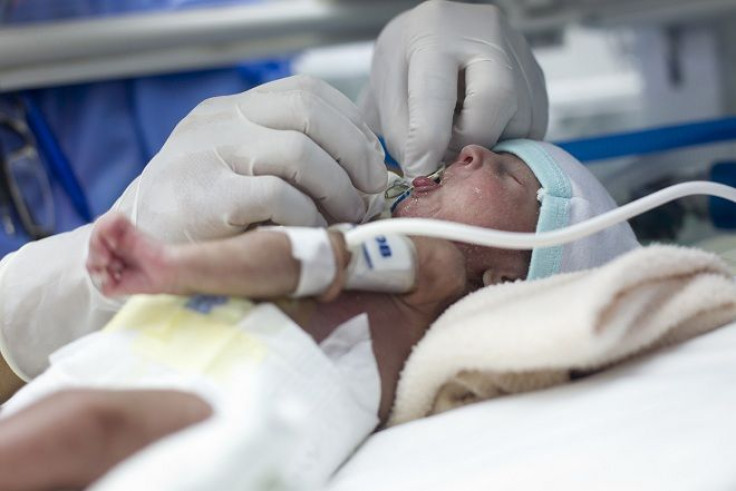Stem Cells From Amniotic Fluid May Help Save Babies from Fatal Gut Disease [STUDY]

An agonizing inflammatory disorder known as necrotizing enterocolitis, or NEC, which is the decay of the intestinal lining of premature or sick babies, has only a few, very aggressive treatment options such as surgery.
Even then, the chance of survival is only 40 pecent and researchers indicated the number of babies with the condition is on the rise.
However, a new study led by researchers at the University College London Institute of Child Health found that stem cells from the amniotic fluid can repair gut damage and increase a baby's chances of survival.
"Stem cells are well known to have anti-inflammatory effects, but this is the first time we have shown that amniotic fluid stem cells can repair damage in the intestines," said Paolo De Coppi, lead author and researcher at the Institute of Child Health. "Although amniotic fluid stem cells have a more limited capacity to develop into different cell types than those from the embryo, they nevertheless show promise for many parts of the body including the liver, muscle and nervous system."
Researchers collected the amniotic fluid stem cells from rodent models and administered them to rats with NEC, while other rats received bone marrow stem cells or no treatment.
After one week, the rats treated with cells from the amniotic fluid showed a higher rate of survival. Scientists then took a closer look at the intestinal linings and found inflammation reduced significantly and the tissue began to heal on its own.
The intestines are largely responsible for absorbing fluid and a child diagnosed with NEC is thought to lose the ability of reducing blood flow into the bowel, preventing it from producing a mucus that protects the gastrointestinal tract. Breast milk and probiotic formulas also help reduce occurrences of NEC because it boosts immunologic properties.
These stem cells migrated toward the intestinal villi, which are hair-like projections of the lining that pass nutrients on to the bloodstream, and released growth factors that initiated formation of new villi and surrounding tissues. Overall, the stem cells showed a significant improvement in intestinal functions after administering amniotic stem cells.
"In the future, we hope that stem cells found in amniotic fluid will be used more widely in therapies and in research, particularly for the treatment of congenital malformations," De Coppi said.
"Once we have a better understanding of the mechanisms by which AFS cells trigger repair and restore function in the gut, we can start to explore new cellular or pharmacological therapies for infants with necrotizing enterocolitis," added co-author Simon Eaton from Institute of Child Health.
Findings of the study are published in the journal Gut.



























